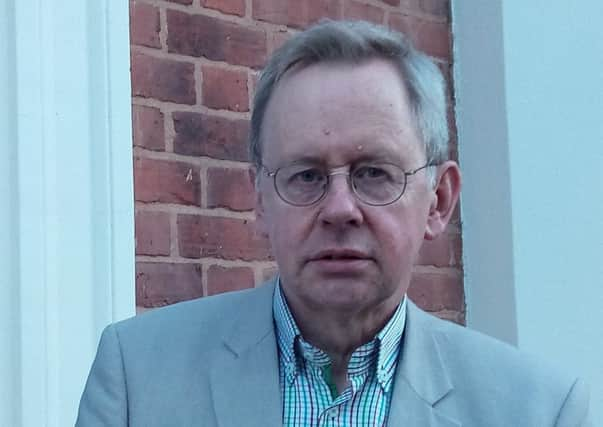Human rights convention seems silent on terror probes


This article (links to the first two in the series are below) examines how Article 2 of the European Convention on Human Rights applies in the contentious context of ‘dealing with the past’.
As already explained, the ‘right to life’ duty includes an obligation on the state to ensure prompt and effective public investigation by an independent official body where there is allegation of state involvement in any death – the ‘procedural obligation’.
Examining key phrases from the ‘procedural obligation’:
Advertisement
Hide AdAdvertisement
Hide Ad• Prompt examination – in practical terms how can there at this length of time be ‘prompt examination’ of what happened in every death involving ‘agents of the state’ across Northern Ireland in every year of the Troubles?
• Effective examination – to the extent that resources of investigation, forensics and legal input are focussed to the task in (perhaps futile) effort to prove ‘effectiveness’, the less in practical terms there can be for anything approaching an equivalent level of investigation into the circumstances of all the other deaths, injury, destruction and damage of the whole Troubles period.
• Independent official body – certainly, the Coroners Courts qualify as the independent official body under current Northern Ireland legislation for the independent investigation of such deaths. But to the extent that the Coroners Courts are to be required to carry out historic inquests, the more prejudice there must be to the current work of the Coroners Courts.
Is it fair that inevitable delays in inquests should be extended yet further to accommodate every demand for each historic inquest?
Advertisement
Hide AdAdvertisement
Hide Ad• Death – If the aim and intent is to ‘find the truth’ of what happened in the whole Troubles period, one should not focus only on all the deaths of that period, tragic and wasteful as each and every death was. Any full process of examination and investigation into that period should surely focus also on all those who were injured or who had their homes or businesses destroyed by terrorist explosion, who lost their employment or means of earning a living, who were intimidated or who otherwise suffered trauma. The terms of Article 2 do not address any of that.
The apparent priority of investigation into deaths involving ‘agents of the state’ will leave everyone else who has suffered bereft of equivalent remedy and susceptible to a deep sense of injustice.
Agents of the state implicated – in circumstances of deaths involving agents of the state, deaths in custody, for instance, convention case law now requires such independent investigation. In such cases there is generally no ‘third party’ involvement. But in the circumstances of our Troubles the state had to contend with a persistent campaign waged by several large, well-resourced and determined republican and loyalist terrorist organisations.
That was ‘third party’ action on an entirely different order of gravity for the state. From the perspective of the victims of those organisations it is incongruous that the actions of ‘agents of the state’ must be subject to such forensic scrutiny involving privilege of treatment when the convention appears silent in regard to investigations of the actions of the terrorist organisations themselves.
Advertisement
Hide AdAdvertisement
Hide AdApparently, the outcome of the political negotiations may be that some alternative mechanisms for investigations of deaths not attributable to state actors may be put in place. But will this be ‘second class’ compared with the priority given to ‘Article 2 deaths’?
And no provision for any investigation of the rest of the Troubles?
So the final article will attempt to draw some conclusions.
• Neil Faris is a Belfast lawyer who does advisory work in public and commercial law.
His first article is online, here: ’Article 2 of the ECHR and the right to life’
The second article is here: ‘It will be hard to tackle our troubled past if state killings are given privileged scrutiny’